PHOTOS: In a locked-down city, signs of life and helping hands in the fight against COVID-19
When a pandemic strikes, all hands first turn to caring for the stricken. But with Spain in a virtual lockdown for weeks, the entire country has been affected, and more than just health care workers have been enlisted in the response.
Barcelona photojournalist José Colón donned a mask and gloves to venture out into an almost deserted city, turning his camera on those anonymous heroes who are helping to keep the city running. “Sometimes while doing this shoot I got chills, thinking of what a caring community we live in,” he says.
Help for and help from the homeless
With over 1,200 homeless people in Barcelona, one priority has been providing shelter for them. The Spanish army rehabbed the Victòria Eugènia pavilion at Barcelona’s convention center, which will house up to 1,000. Two dozen other homeless people, who have masks, are taking shelter at a residential home, Cadiz, next to the iconic Sagrada Familia cathedral — like the rest of Spain unable to venture outside, though they receive regular meals.
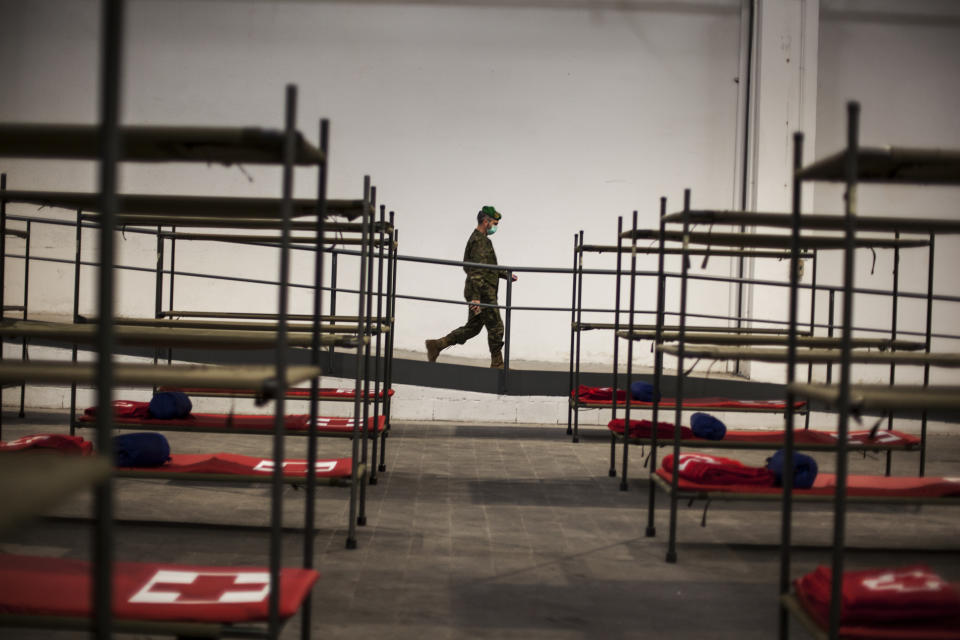
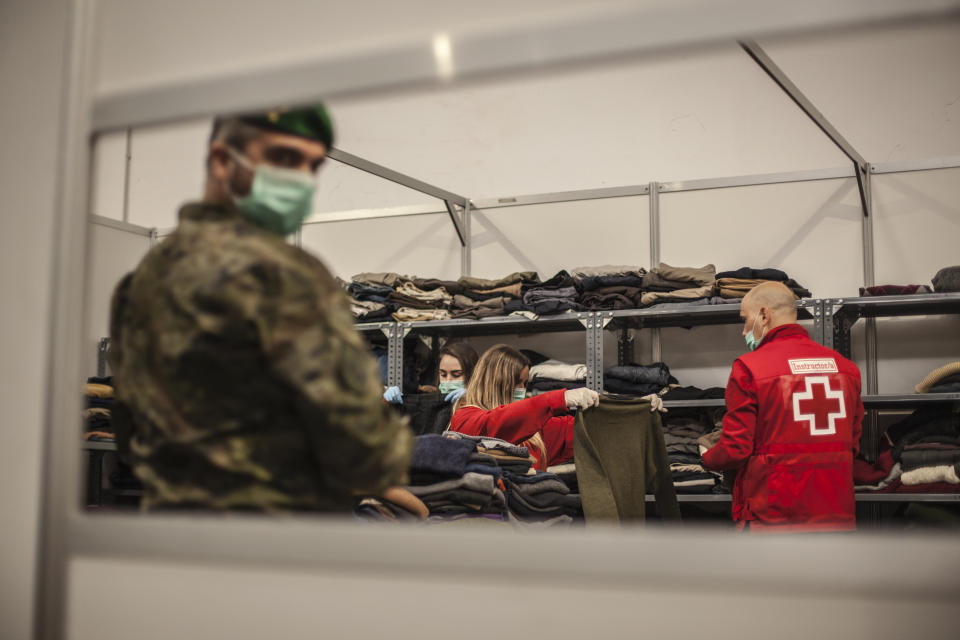
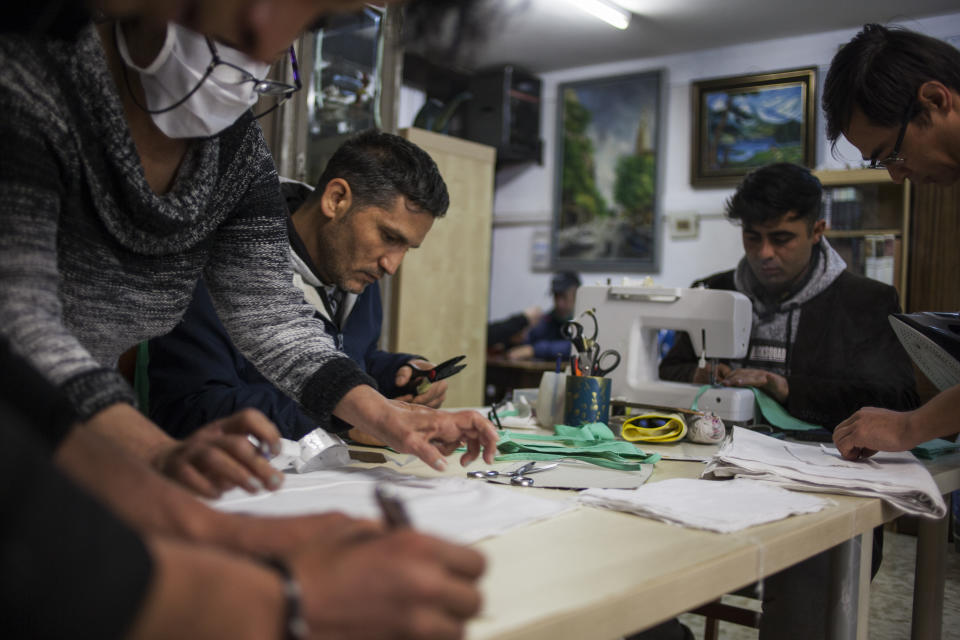
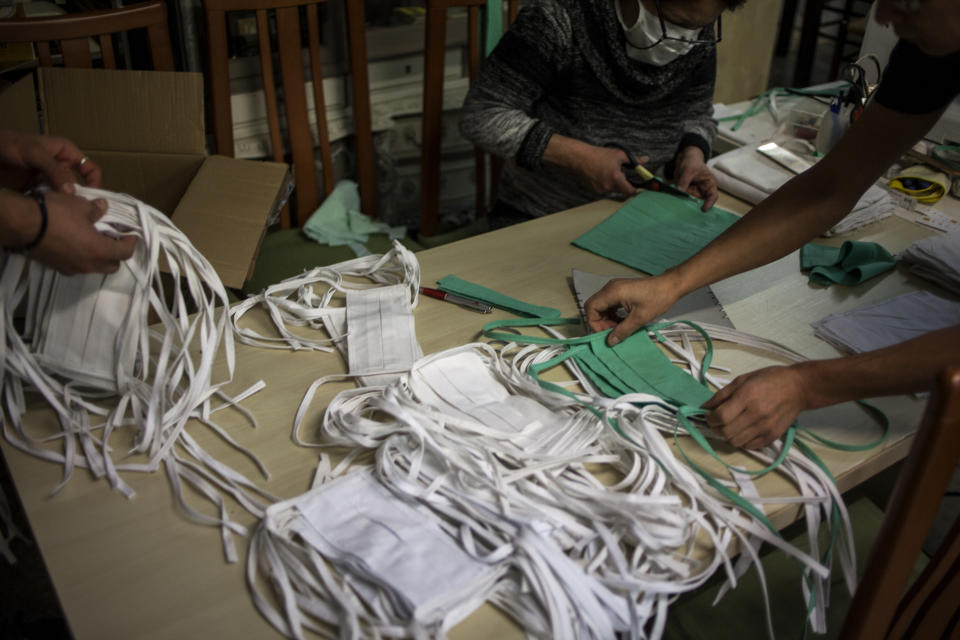
Help for the homebound and elderly
The elderly too are at high risk, particularly those in nursing homes, where thousands have died. Troops sent to disinfect the facilities reportedly discovered that some had been abandoned by the staff, leaving residents dead in their beds. But in Barcelona, some 50 volunteers from the organization Proactiva Open Arms are working with nursing homes to help test residents and workers for the coronavirus — and many seniors and workers are participating in tests of experimental therapies, including hydroxychloroquine. The clinical trial is headed by local epidemiologist Dr. Oriol Mitjà, researcher at the Germans Trias i Pujol Hospital, and coordinated by Dr. Bonaventura Clotet of the Fight AIDS Foundation.
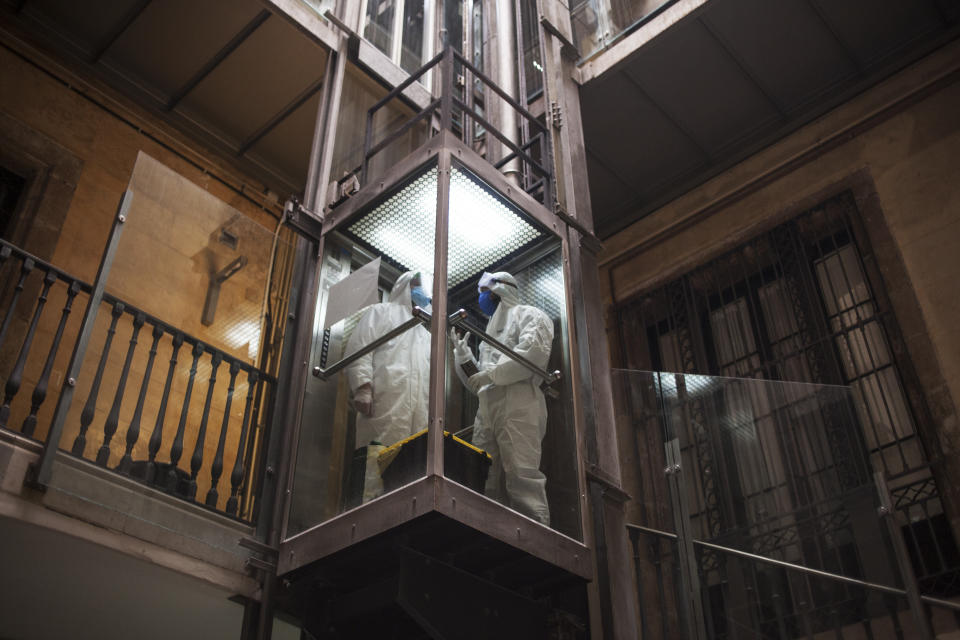
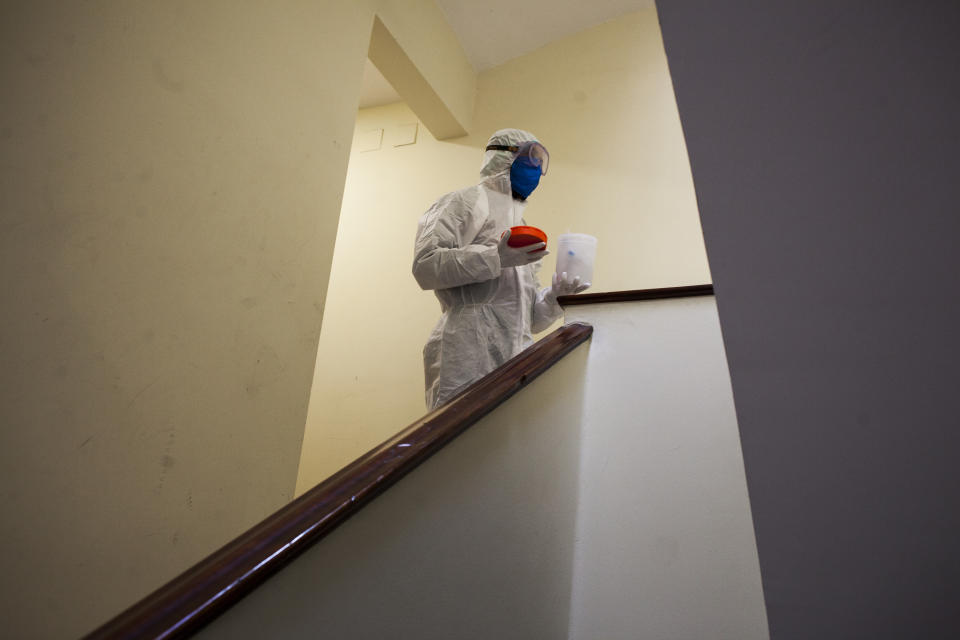
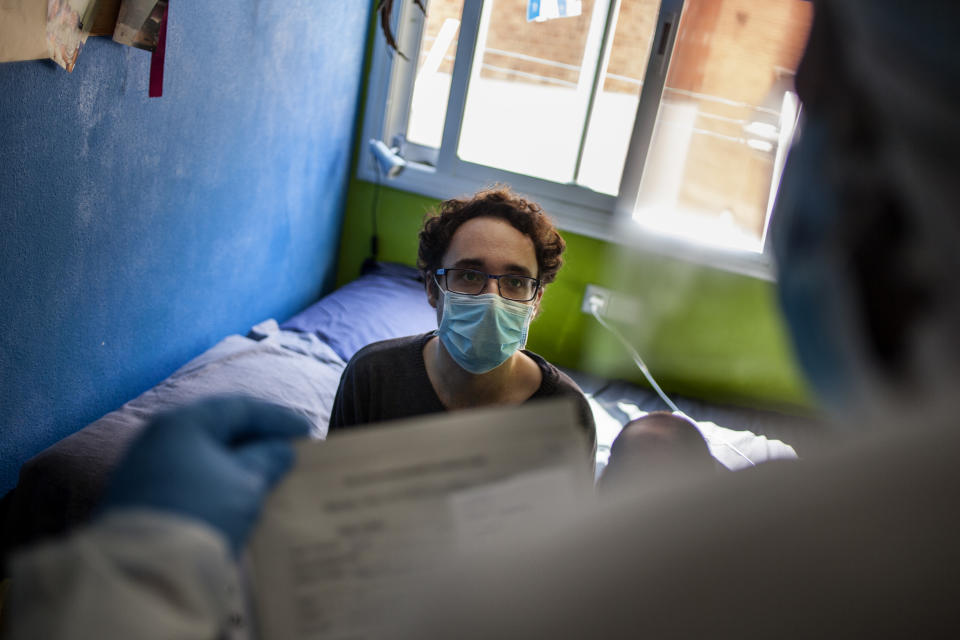
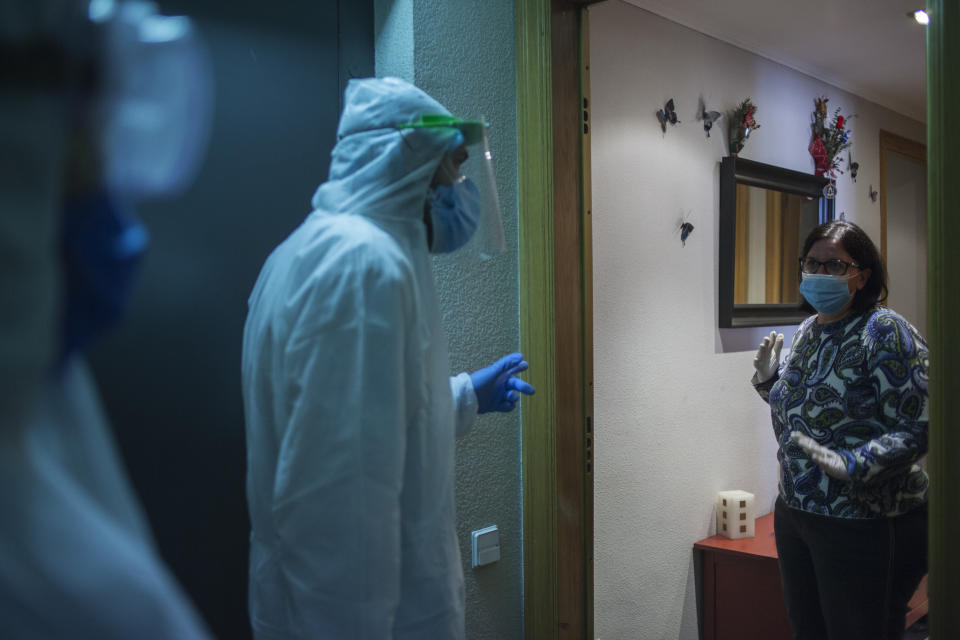
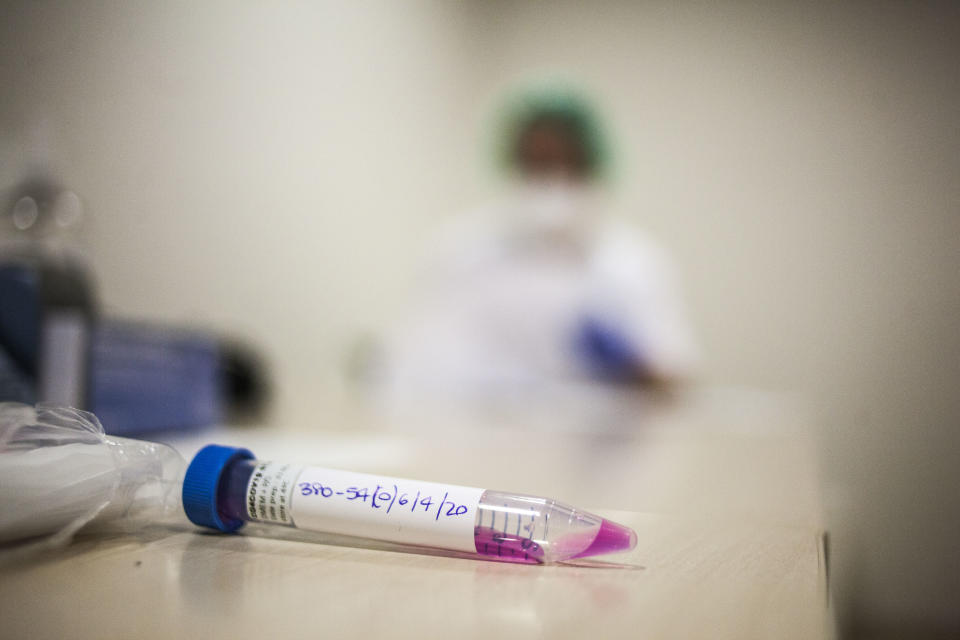
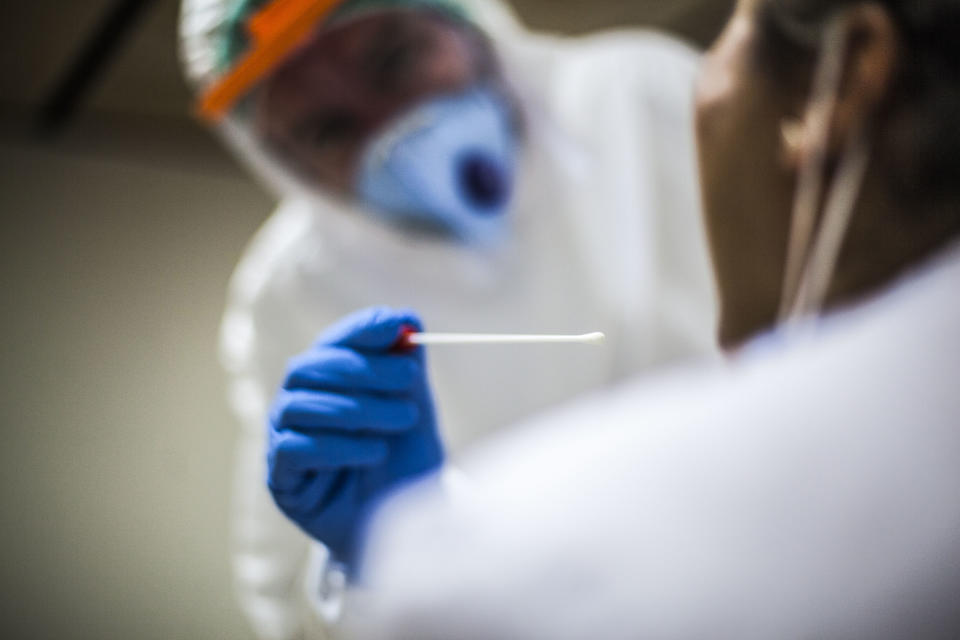
As in the U.S., facilities for the elderly in Spain have been devastated by the coronavirus. In Barcelona alone, more than two-thirds of nursing homes have been sites of COVID-19 infections, according to Mayor Ada Colau. Government employees — from the armed forces to the fire brigades — have been sent out to disinfect these hot spots.
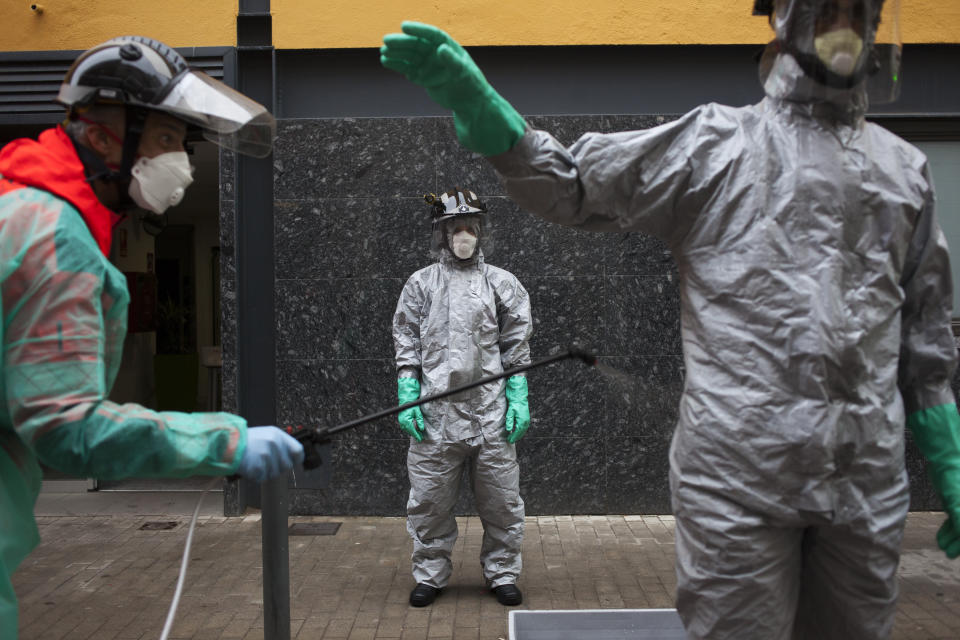
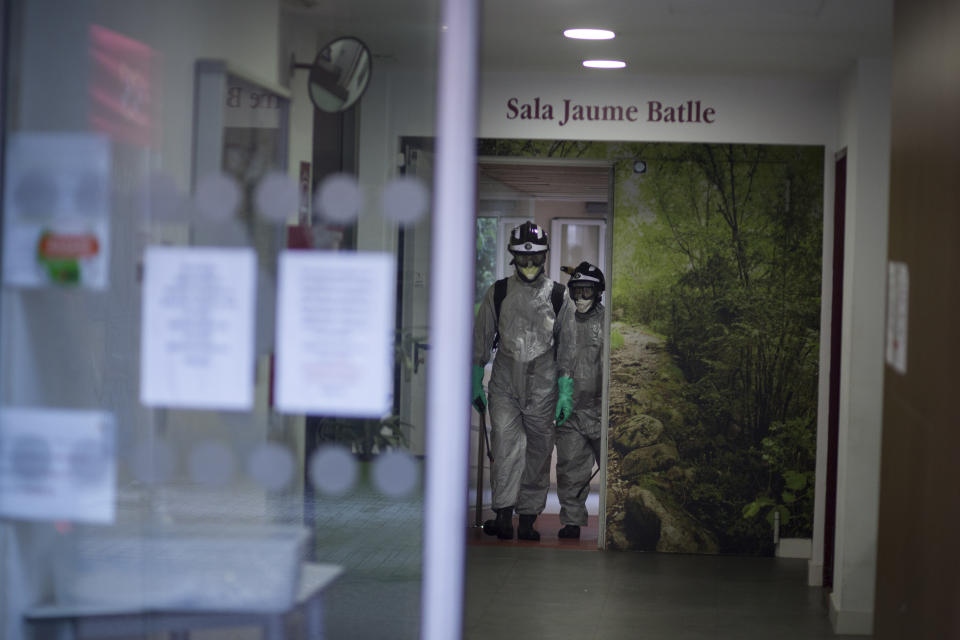
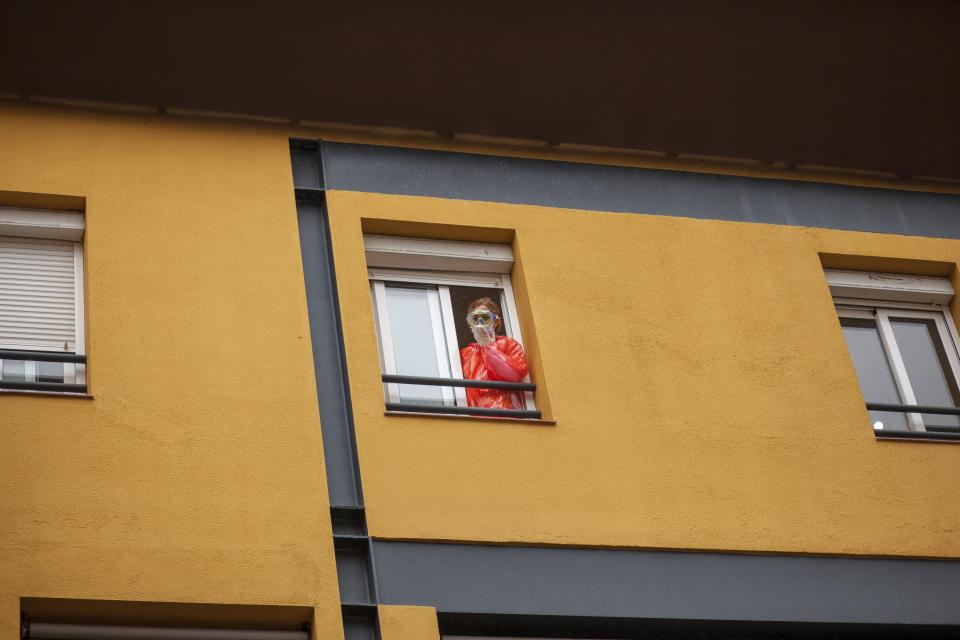
Street vendors find a new line of work
“Manteros” — as the Senegalese men normally selling shoes, purses, toys and selfie sticks outside of tourist sites are called — are also hard-hit by the lockdown. “They’ve lost their jobs, and many have problems paying the rent and ensuring the most basic food,” says a spokesperson for the Popular Union of Street Vendors. To address those woes, the union has opened a food bank. Along with the Top Manta clothing brand, the Popular Union of Street Vendors also has turned a clothing store into a clothing factory, where hundreds take turns at the sewing machines, making thousands of masks and gowns, which are donated to workers in Barcelona area hospitals.
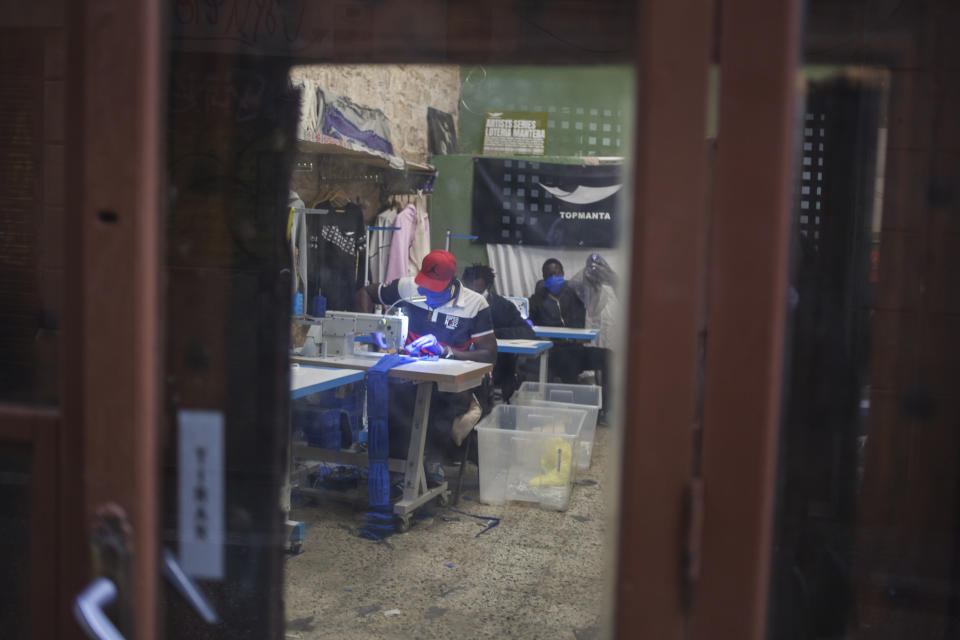
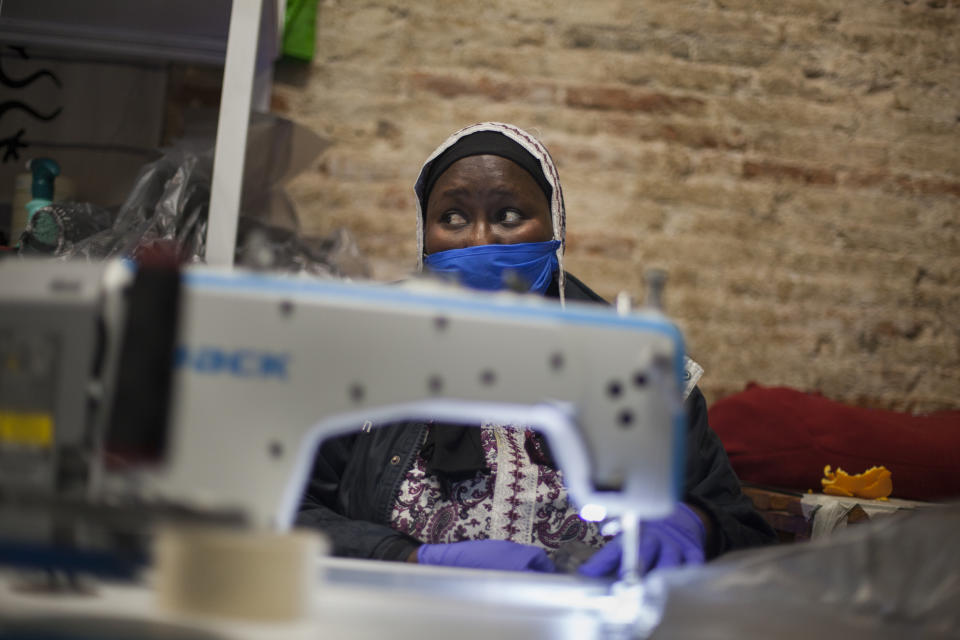
Supporting health care workers
Hospital and clinic workers themselves — dubbed “Health care kamikazes” by the New York Times — are one of the hardest-hit populations. Often working without adequate protective gear, at least 12,000 have fallen sick themselves, and 13 have died. Each night, residents of Barcelona assemble on their balconies to cheer them. Barcelona restaurants have joined to deliver food to local hospitals nightly, in an initiative called “Delivery 4 Heroes.”
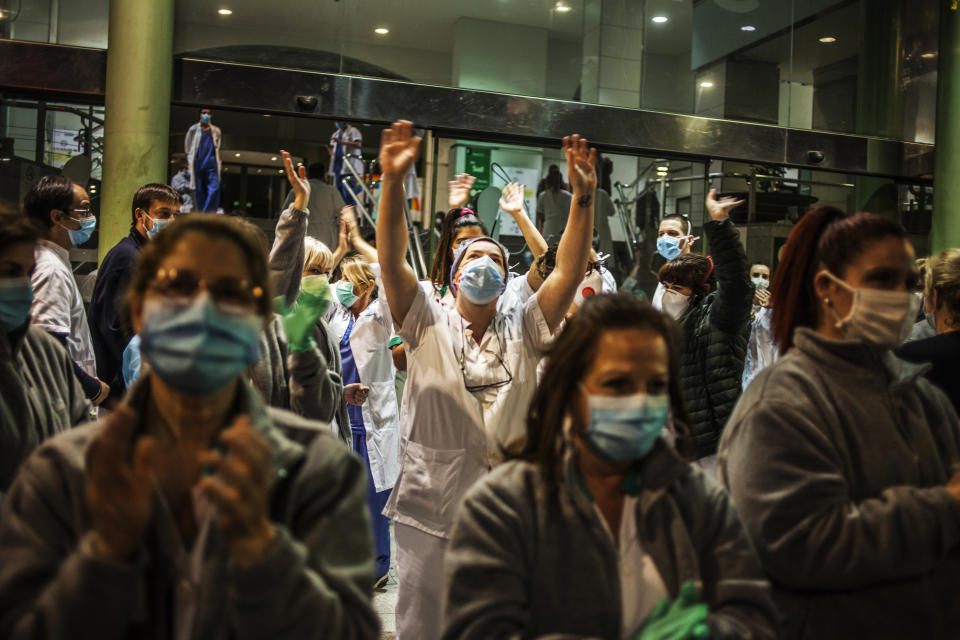
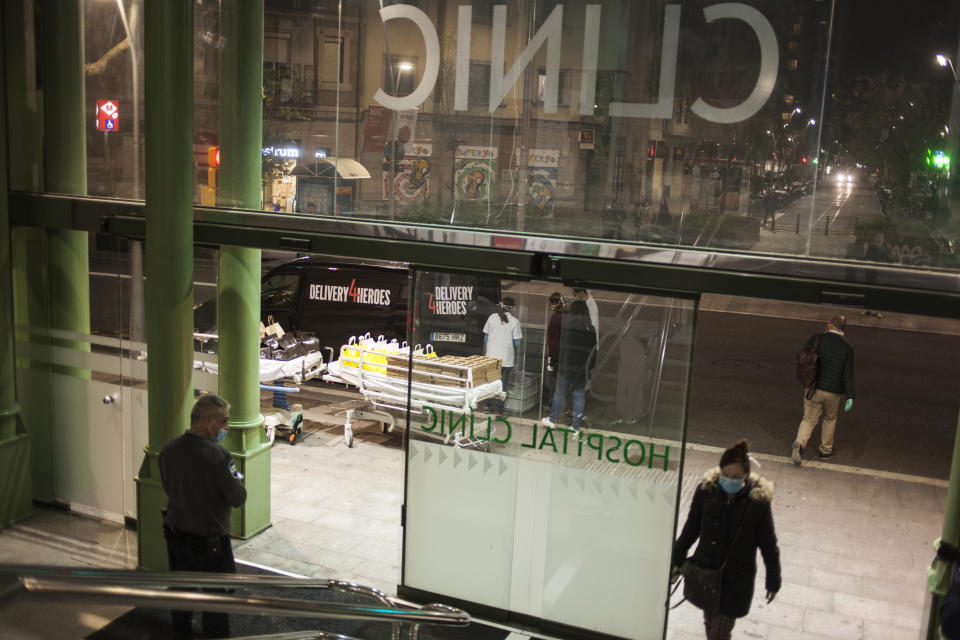
Coping with the deceased
With nearly 10 percent of known COVID-19 victims in Spain ultimately succumbing to the disease, mortuaries and crematoria are overwhelmed, and coffin makers can’t keep up. In Barcelona, the backlog of requested cremations stretches as long as two years. Throughout Spain, public funerals with more than two people have been temporarily banned.
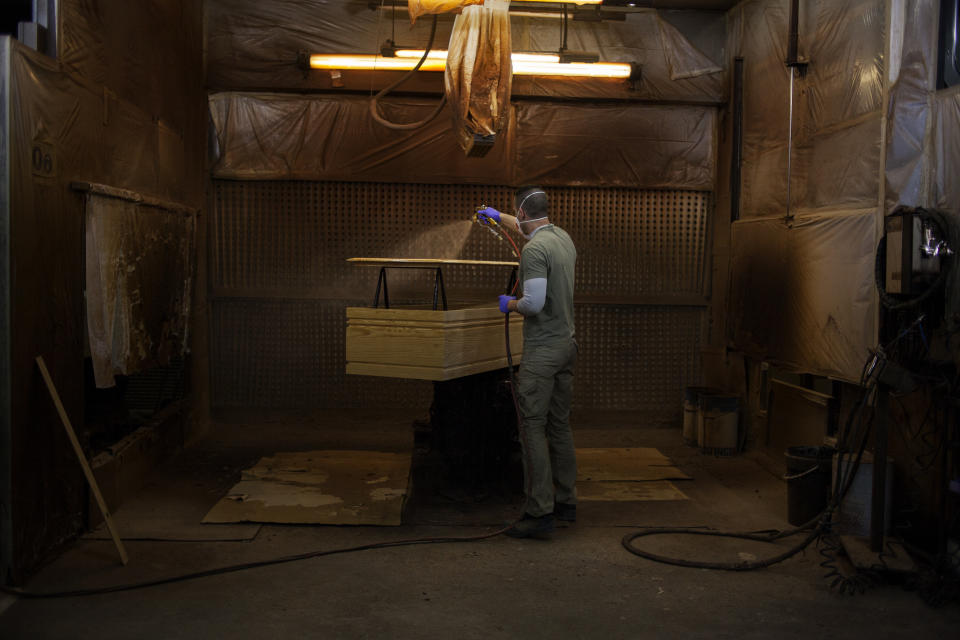
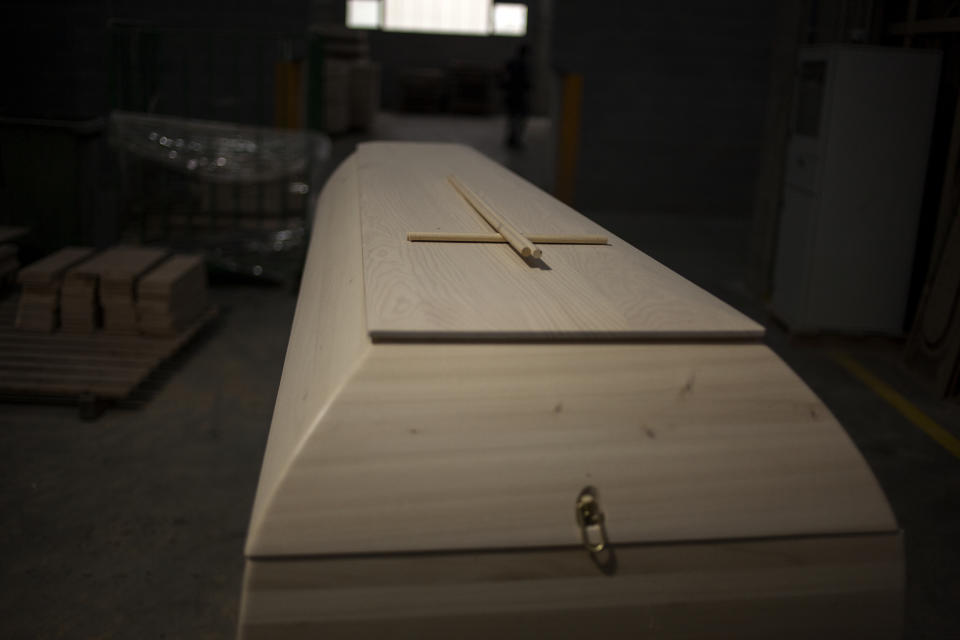
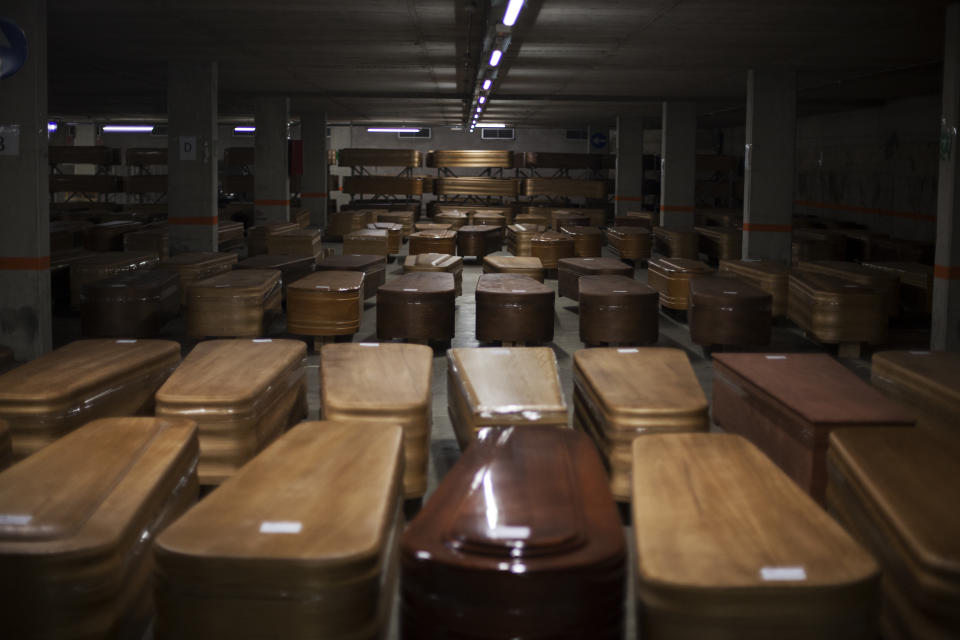
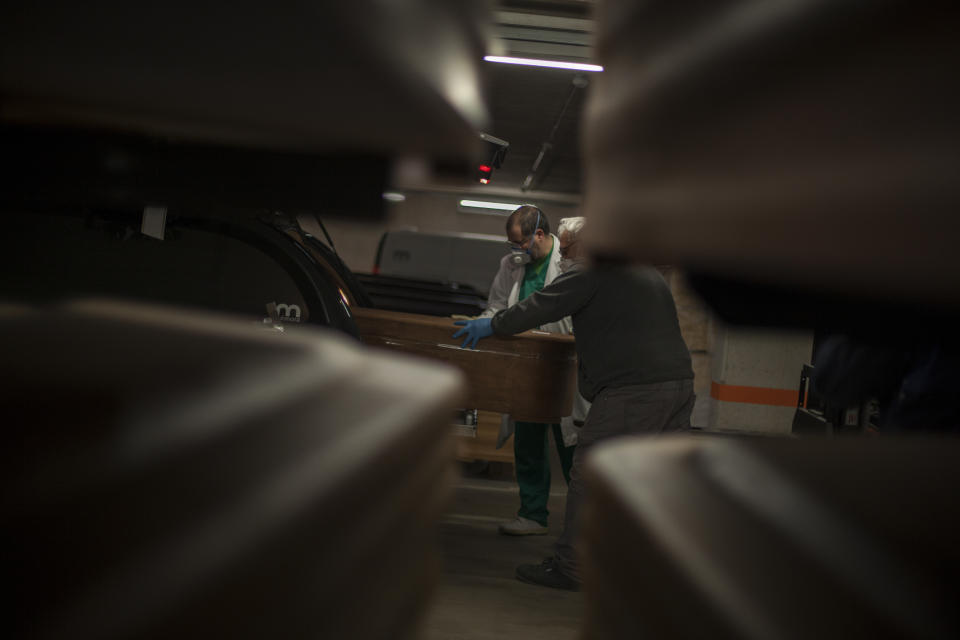
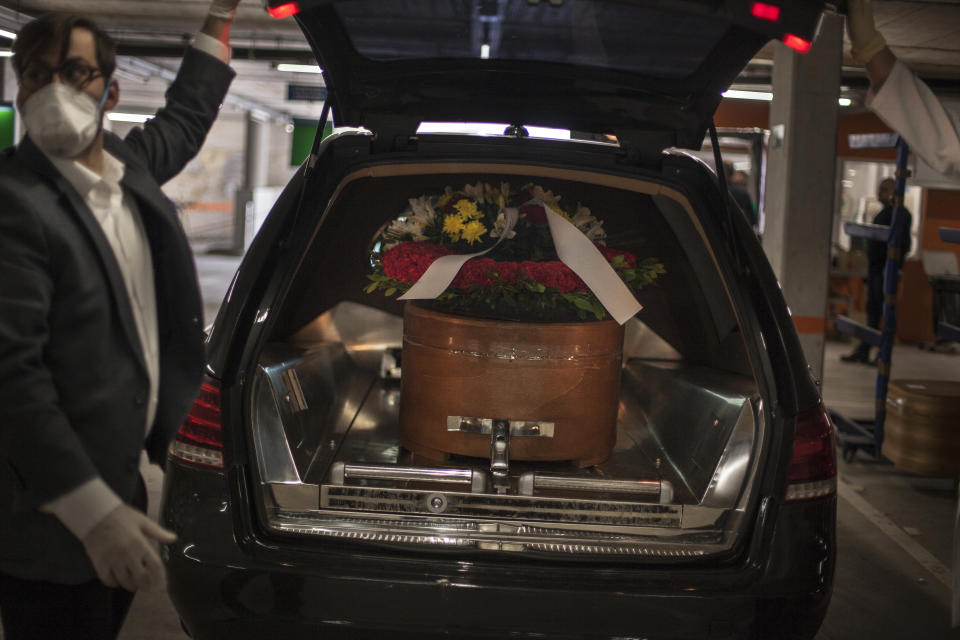
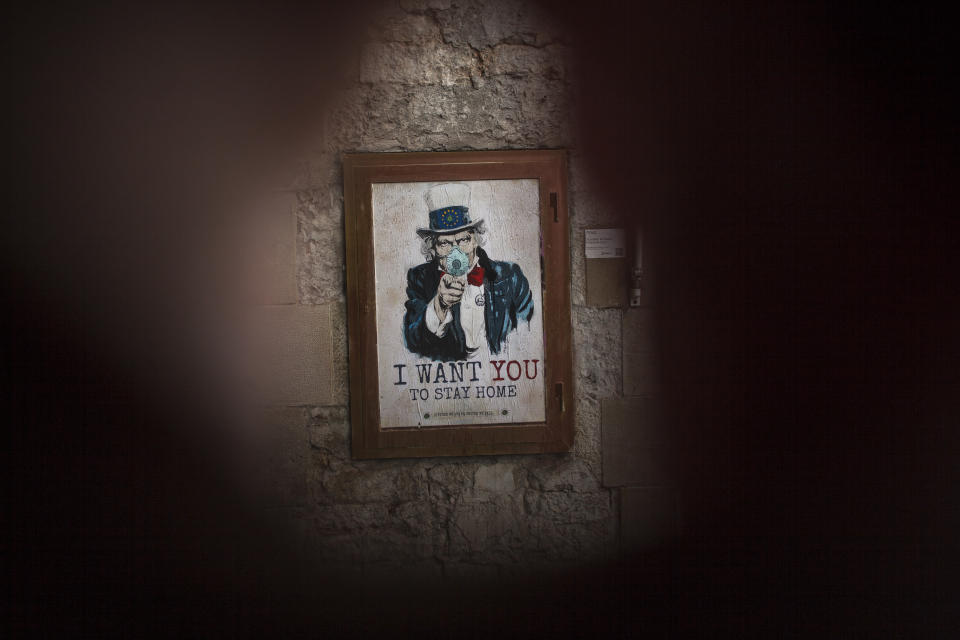
See more news-related photo galleries and follow us on Yahoo News Photo Twitter.
_____
Click here for the latest coronavirus news and updates. According to experts, people over 60 and those who are immunocompromised continue to be the most at risk. If you have questions, please refer to the CDC’s and WHO’s resource guides.
Read more:


